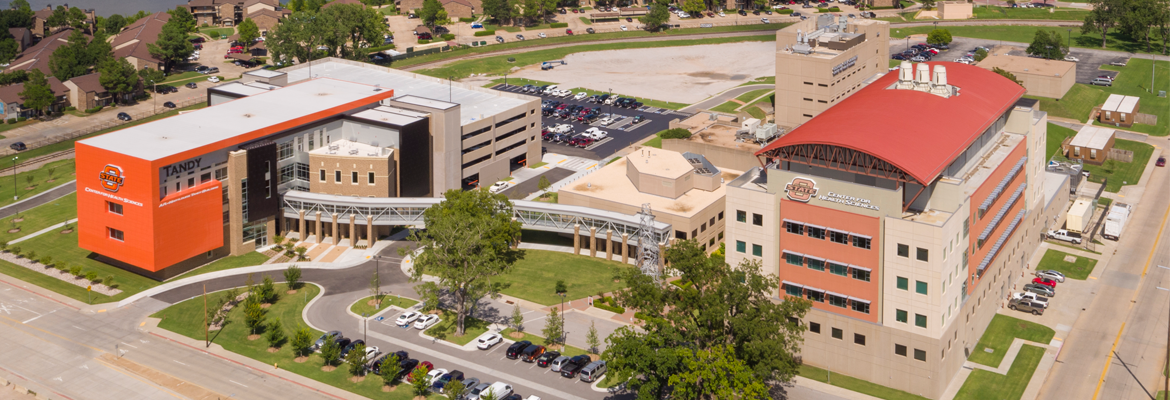
O`Brien awarded prestigious prize from Society of Vertebrate Paleontology
Thursday, December 1, 2016
Haley O’Brien, Ph.D., assistant professor of anatomy and cell biology at Oklahoma State University Center for Health Sciences, is the recipient of the 2016 Alfred Sherwood Romer Prize for her outstanding scientific contribution in vertebrate paleontology as a pre-doctoral student.
O’Brien is the first OSU-CHS recipient of the award. The Society of Vertebrate Paleontology awards the prize annually to an early career researcher for outstanding doctoral research based on an oral presentation at the society’s annual meeting.
“The Romer Prize is prestigious in the field of vertebrate paleontology so competition is very intense,” O’Brien said. “This achievement represents nearly a decade of hard work and dedication. I am honored my research and presentation stood out to the award committee.”
O’Brien’s research explores the role of a phenomenon called ‘selective brain cooling’ in shaping the evolution and modern diversity among large mammals over the past 65 million years. She specifically focused on a group of animals called artiodactyles, including antelope, deer, sheep, goats, pigs, camels, hippos and giraffes.
“Essentially, large mammals that have this special physiology are extra efficient when it comes to retaining the water they consume,” she said. “A great illustration of this is the camel, which uses selective brain cooling as part of its adaptation to desert life.”
Because the vasculature that enables selective brain cooling leaves unique impressions and grooves on the cranial skeleton, O’Brien was able to examine fossil artiodactyl skulls to trace the history of the selective brain cooling physiology.
“Artiodactyls capable of selective brain cooling have a better chance of surviving climactic warming and drying. This is good news for living artiodactyls as we know that the globe will be warming and drying in the future,” she said. “If history is any indication, they may be better suited to surviving climate change than we previously thought.”
O’Brien plans to continue her selective brain cooling research with other mammal groups, such as large carnivores.
SVP is a nonprofit corporation organized to advance the science of vertebrate paleontology throughout the world, to foster scientific and educational understanding of vertebrate fossils and to support and encourage the discovery, conservation and protection of vertebrate fossils and fossil sites.
